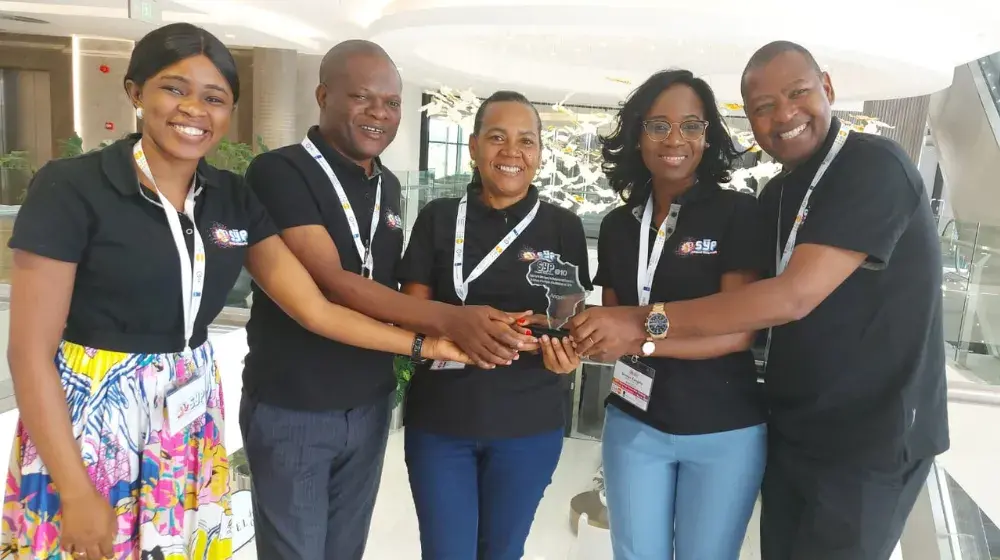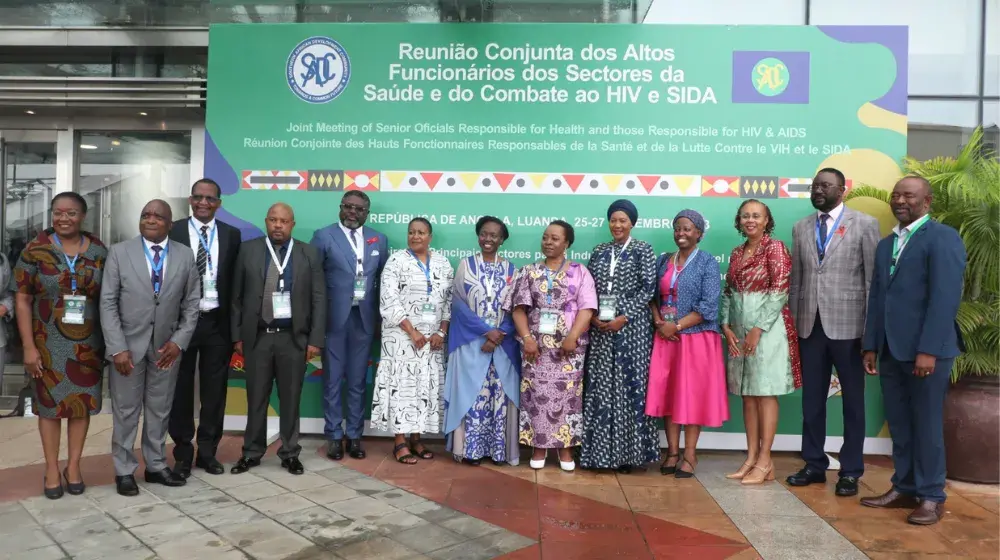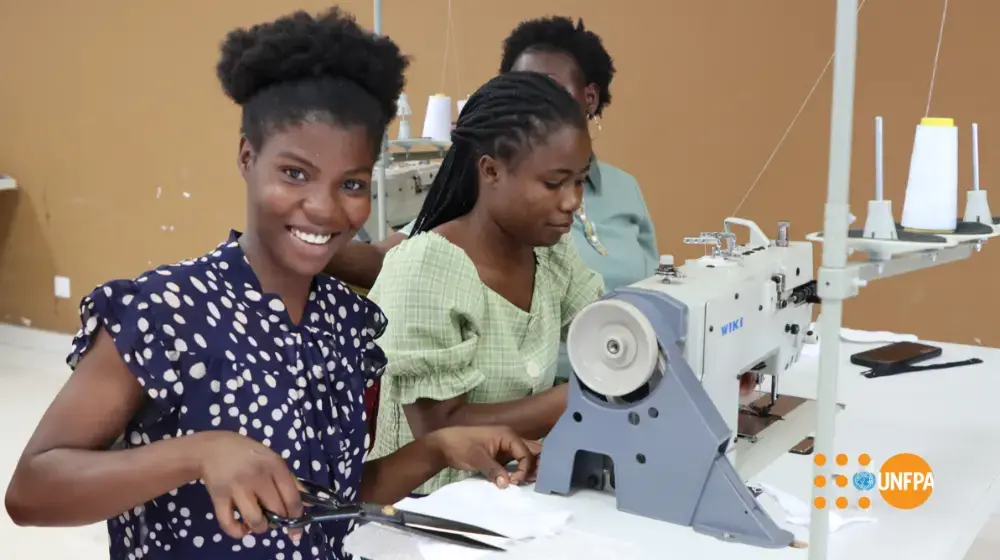Government of Angola, World Bank, and UNFPA Together to Guarantee SRH rights in Emergencies
“Working with women, my biggest challenge is to bring knowledge, because those who do not have knowledge will not be able to do anything, they with knowledge already know prevention, they already know what they have to do during pregnancy or women of reproductive age” said Carolina Manuel Sousa, 42 years old, third-class midwifery nursing technician in Namibe province in Angola.
Carolina Manuela Sousa or simply “Caró” as she is called by her colleagues, always had the dream of serving the community, before joining the Ministry of Health, she tried her luck in the Defense and Security Forces, had the hope of being able to work for the National Police, however, in the area related to health so that he could take care of his colleagues. Fate ended up showing her a different path, she continues to provide services to the community, but not in the Defense and Security Forces as she always wanted. Today, she assumes herself as a professional who provides her knowledge to the Ministry of Health in Moçâmedes.
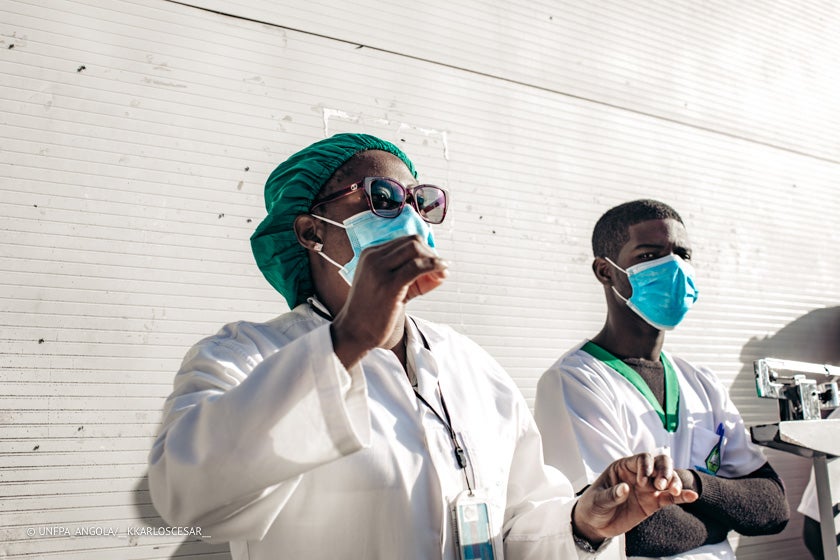
Carolina Sousa has been working as a nurse for 14 years. Today, she is responsible for the delivery room, obstetrics and family planning at the Centro de Saúde do Bairro 5 de Abril in Moçâmedes. Carolina is part of the group of 240 health professionals who benefited from the training implemented by the Government of Angola, UNFPA and the World Bank to guarantee Sexual and Reproductive Health services in regions affected by drought.
Strenghtening Health Services Beyond Emergencies
“The training was beneficial, because there are things I didn't do before, such as: calculating the gestational age, tracking STIs, which are sexually transmitted diseases, and today, I'm doing and implementing what I learned during the training. Also with the knowledge acquired I had to train my colleagues and today there is more demand for our services.”
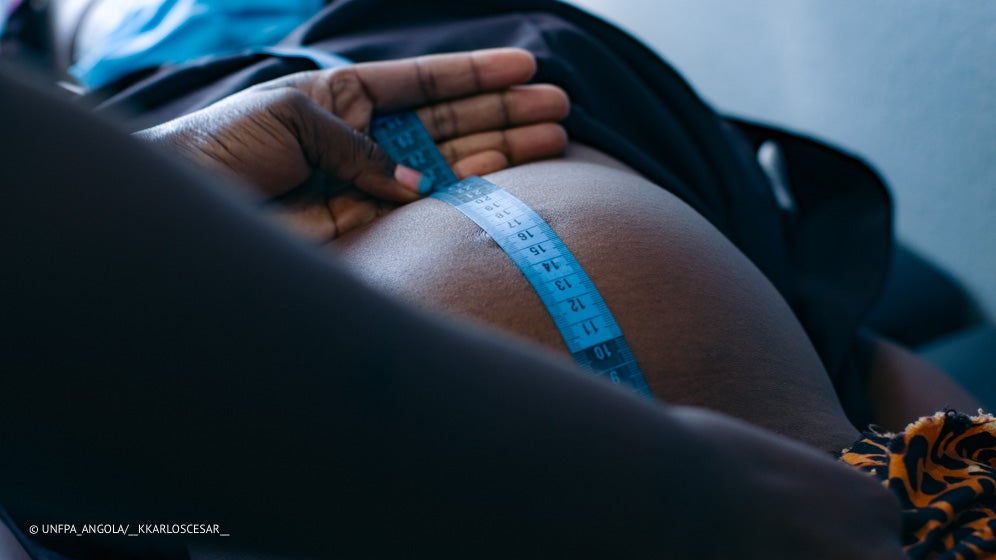
Nurse “Caró”, points out significant improvements with the knowledge acquired and makes a comparison of before and after training, which fills her with pride in being able to work more and better for the development of the community she works with.
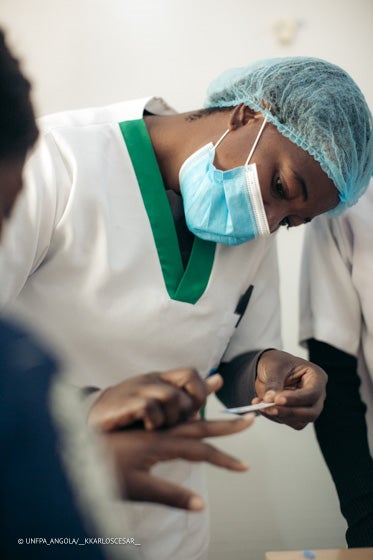
“My dream is to see more women joining family planning consultations, because if they join family planning they will have few difficulties in being able to stabilize or support their children, because there are many mothers with children aged 6 months or 1 year and get pregnant right away. Why? Because she doesn't have the knowledge to do family planning.”
Today, there is more adherence to the demand for family planning services, as information flows more and more and knowledge begins to take hold within the community and there are mothers who, after childbirth, manage to leave the hospital unit with the planning in place.
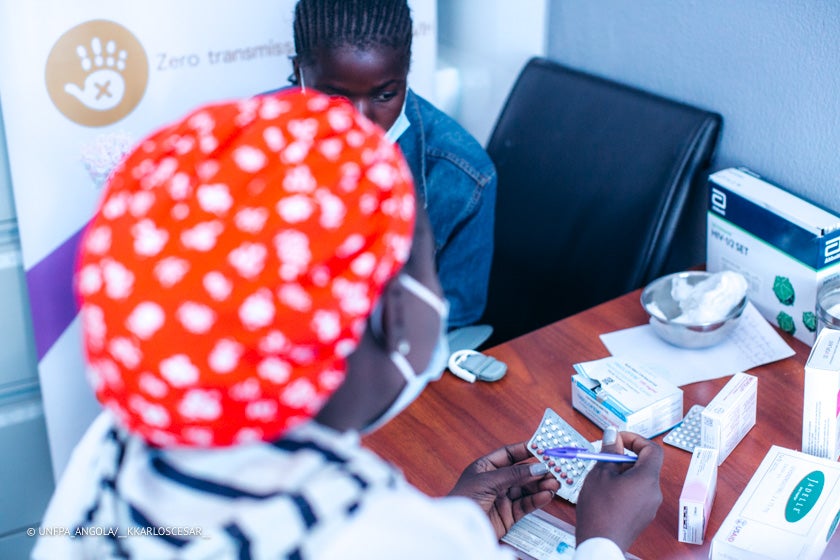
Family Planning Is Crucial To Guarantee Safe Birth Deliveries in Emergencies
It is estimated that 38% of women aged 15 to 45 in Namibe province intend to adhere to family planning, but due to lack of knowledge they still do not know how to proceed. Often, during emergencies such as droughts, famines,and mass displacement, the importance of Sexual and Reproductive Health services os overlooked. This leaves a great gap, creating unplanned pregnancies in dire living conditions. The Government of Angola, in partnership with UNFPA and the World Bank, implement a program to strengthen health in the long term, as a way of maintaining basic care for pregnant women and children in the regions most affected by drought in Angola. In order to guarantee Sexual and Reproductive Health services, an integrated package of Sexual and Reproductive Health services was implemented with 240 health professionals in the provinces of Huíla, Namibe, Cunene and Cuando Cubango.


